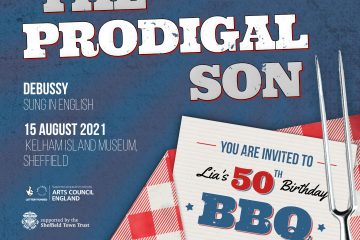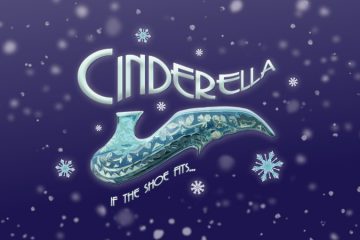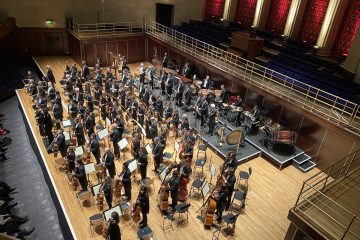Dearest readers, something new for you today, a blog on a conference I attended in June which I think you’ll be interested to hear about. ‘Representations of Early Music on Stage and Screen’ (REMOSS) is a small working group of academics from around the UK who put together meetings, talks, conferences and other events:
“Over the last three years, the group has grown in it membership, presented themed sessions at the Medieval and Renaissance Music Conference and the Society of Renaissance Studies Biennial Conference, and is son to have its first volume of essays published with Routledge.” (Taken from the conference booklet).
It just so happened that the 2017 REMOSS conference was being held in Sheffield, with one of the organisers being my dissertation supervisor – James Cook. I went along for the ride, even though I thought for a while I may be slightly out of place due to me knowing very little on this research area. However, this really was not the case. The impressive array of speakers from around the world, all with different research areas, created an atmosphere that was welcoming and above all, interesting. I also met some wonderful people, who I am glad to have kept in touch with. There were four sessions on this day, all with three 30 minute papers, making it a very intense day, but one that was most enjoyable.
We begun the day with some really interesting coffee, which was more than welcome after a heavy downpour as I walked to the conference! After more people had arrived we sat and had a welcome talk from the men behind the conference, James Cook, Alexander Kolassa and Adam Whittaker. The first session comprised of three papers:
Kenneth McAlpine (Abertay University)
“From Partitas to Platformers: How the Compositional Practice of Bach Shaped the Music of Video Games”
Jennifer Smith (University of Huddersfield)
“Music in the Early Game: Civilization VI”
James Cook (University of Sheffield/Edinburgh)
“Towards a Typology of Fantasy Medievalism in Videogame”
The theme of video games was the link between these three interesting papers, with all giving a unique insight into this fairly under-researched area. The first paper by Kenny, was a fantastic open to the conference as it gave insight into both the musical and technological aspects of producing video game music. The history of video game music was also intriguing to learn, as that is something I had never looked at before. The second paper, which used the game ‘Civilization VI’ as its case study, was enlightening and drew upon many different visual examples. The focus was on folk songs and how they are used in different eras within the game, and as someone who hasn’t played this game, it certainly gave me food for thought! The final paper, by James, tied up this session nicely by discussing how medievalism plays a central role in the creation of different worlds in video game, and how this can represent a more meaningful representation of a world. He discussed various concepts from folk song, oriental concepts and rock music.
The second session were all connected by a much more obvious link – Joan of Arc:
Donald Grieg (University of Nottingham)
“Lo Duca’s Sonorisation of Dreyer’s La Passion de Jeanne d’Arc”
Adam Whittaker (Birmingham City University)
“Sounding Joan of Arc at the End of the 20th Century and Beyond”
Alex Robinson (University of Paris Sorbonne)
“The Middle Ages Restored or Re-Imagined? Music in Jacques Rivette’s Film Jeanne La Pucelle (1994)”
Although the link is more obvious here, the papers were all completely different from each other, making this section really eye-opening. The first, given by Donald Grieg, looked at Carl Dreyer’s 1928 silent movie La Passion de Jeanne d’Arc. Donald’s talk discussed the choice of using early music and silent film, and how correspondence between Dreyer and film critic Joseph-Marie Lo Duca can shed some light on the decisions made for this film. The second paper, by Adam Whittaker, looked at two soundtracks from films released near the end of the twentieth century – Christian Duguay’s Joan of Arc and Luc Besson’s The Messenger. The representation of Joan and how her characteristics were represented musically were discussed, as well as how her faith is represented differently in the two films. The third paper from Alex Robinson, looked at Jacques Rivette’s Jeanne La Pucelle, and how Joan is portrayed differently than in other films. This is then tied together with an account of how accurate the presentation of both Joan of Arc and the Middle Ages is shown through music and film, which was very interesting indeed!
We regathered in the afternoon for the third sessions with the following papers:
Kendra Leonard (The Silent Film Sound & Music Archive)
“Shakespeare and Music in the Silent Cinema”
Claire Fedoruk (Azusa Pacific University)
“Transforming Narrative through Performance: Orlando Di Lasso’s Lagrime di San Pietro”
Daniel Trocmé-Latter (University of Cambridge)
“Masked Orgies and Backwards Priests: Music and Ritual in Kubick’s Eyes Wide Shut (1999)”
What was fantastic about the first paper of this session was the fact it was through a Skype call to Kendra, who was in the USA. Her talk on Shakespeare and silent cinema was enlightening and her examples made the talk all the more interesting. Kendra’s talk looked at two genres of silent film music: early modern English culture and the ‘other’ exotic music that is used for Cleopatra and others. The second paper, presented by Claire Fedoruk, was centred around a collaborative performance between music director Grant Gershon, stage director Peter Sellars and 21 members of the Los Angeles Master Chorale. Claire’s paper took the stance of the modern performance, and how significant a part that plays in the overall dramatic performance of a work. Finally, Daniel Trocmé’s paper on Eyes Wide Shut, considered Jocelyn Pook’s soundtrack and how it has been adapted for screen, looking at one scene in particular. Upon further inspection it seems that part of the text in the chosen scene was partly biblical and partly liturgical, offering various interpretations of how the music is used for dramatic purposes.
The fourth and final session of the conference day comprised of the following papers:
Alexander Kolassa (University of Nottingham)
“Early Music Between the Old and the New in Ken Russell’s The Devils“
Giuliano Danieli (King’s College London)
“Ambiguous Conflicts Between Folk/Early Music and Bourgeois Culture: Pasolini’s Cantebury Tales“
Alexander Jakobidze-Gitman (University of Witten/Herdecke)
“‘Regression Full of Modern Novelty’: The Rewarding Misuse of Heinrich Schutz’s Works in ‘Earth Driver’ (2016)”
Looking at Peter Maxwell Davies’ soundtrack for The Devils, as well as the music from David Munrow, Alexander’s presentation, if I recall correctly, was full of insightful analysis and a comedic personality that was very welcome this late in the day! His talk looked at the relationship between the function of early music in a ‘modernist landscape’ and how this is depicted in The Devils. Following this was Giuliano’s paper on Pasolini’s Cantebury Tales, which focused on the relationship between medieval folk music, the soundtrack for Canterbury Tales and attitudes of Early Music Revival groups in 1960s Italy. The last, and by no means least, paper of the day was given by Alexander Jakobidze-Gitman, who discussed the music of Henirich Schutz in Earth Driver. Full of philosophy, this paper was interesting and full of information about a topic I was completely alien to.
At the end of the day, there was a keynote from Jane Alden from Wesleyan University. An insightful discussion on the importance of the field and the fantastic work people are doing. My favourite part of the keynote was when there was insightful discussion between the speakers and the keynote speaker, which highlighted the importance of this are of research. Overall, the REMOSS conference was a great experience for me, and gave me a taste of some different parts of musicology. I must thank James and the REMOSS team for inviting me to the conference and being so welcoming, and I am looking forward to the next one!
If you found any of above interesting and want to know more, I couldn’t recommend REMOSS enough, see below to find them online!
For more on what REMOSS do see here: http://blogs.bcu.ac.uk/remoss/
Twitter: @REMOSSBrum
See the conference, in full, via this YouTube link: https://www.youtube.com/watch?v=-HMfqfz1-pM



0 Comments